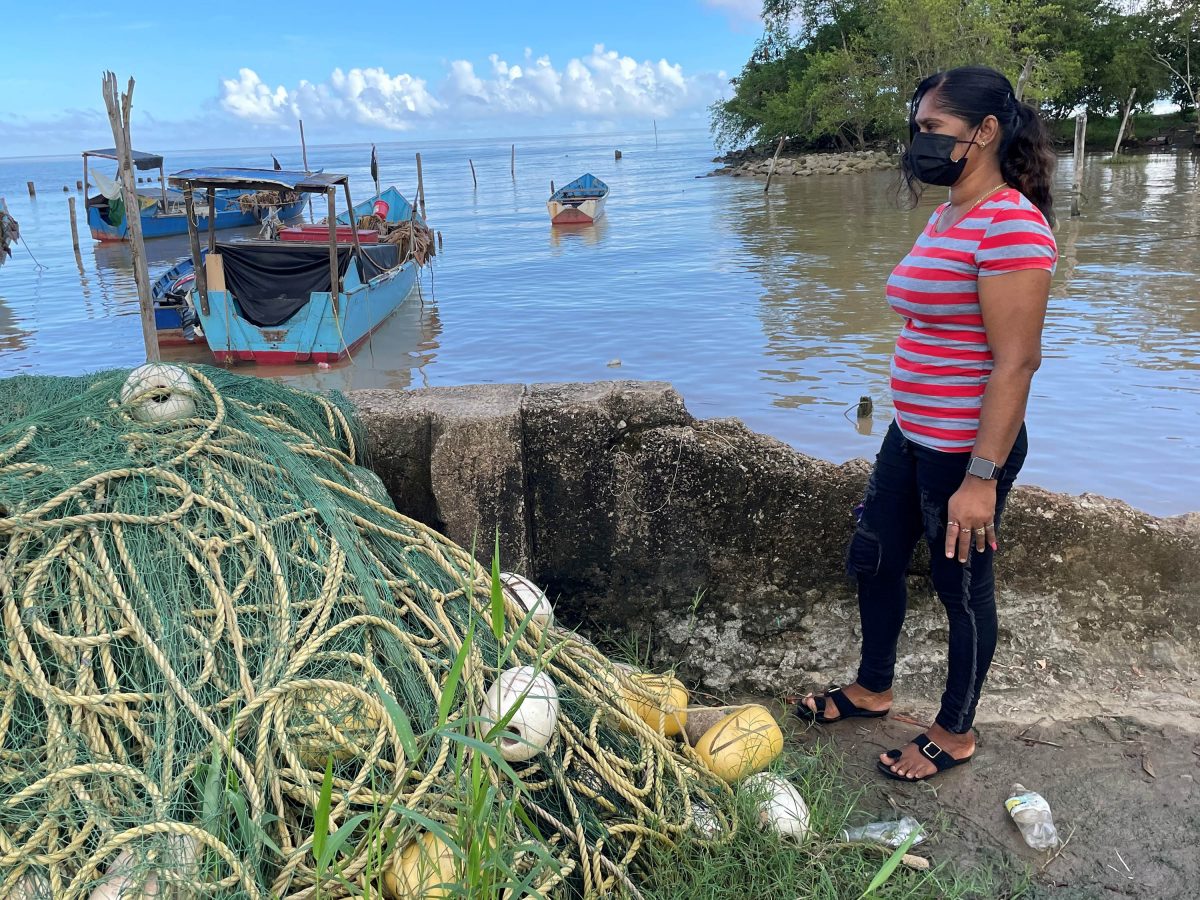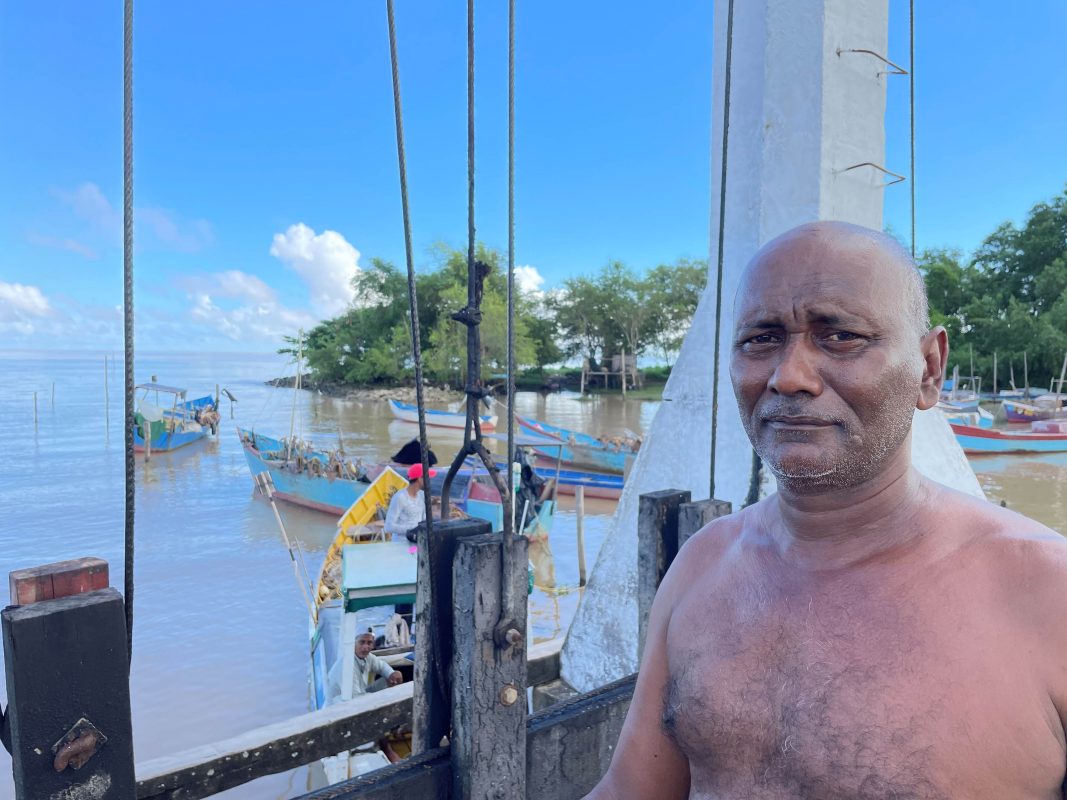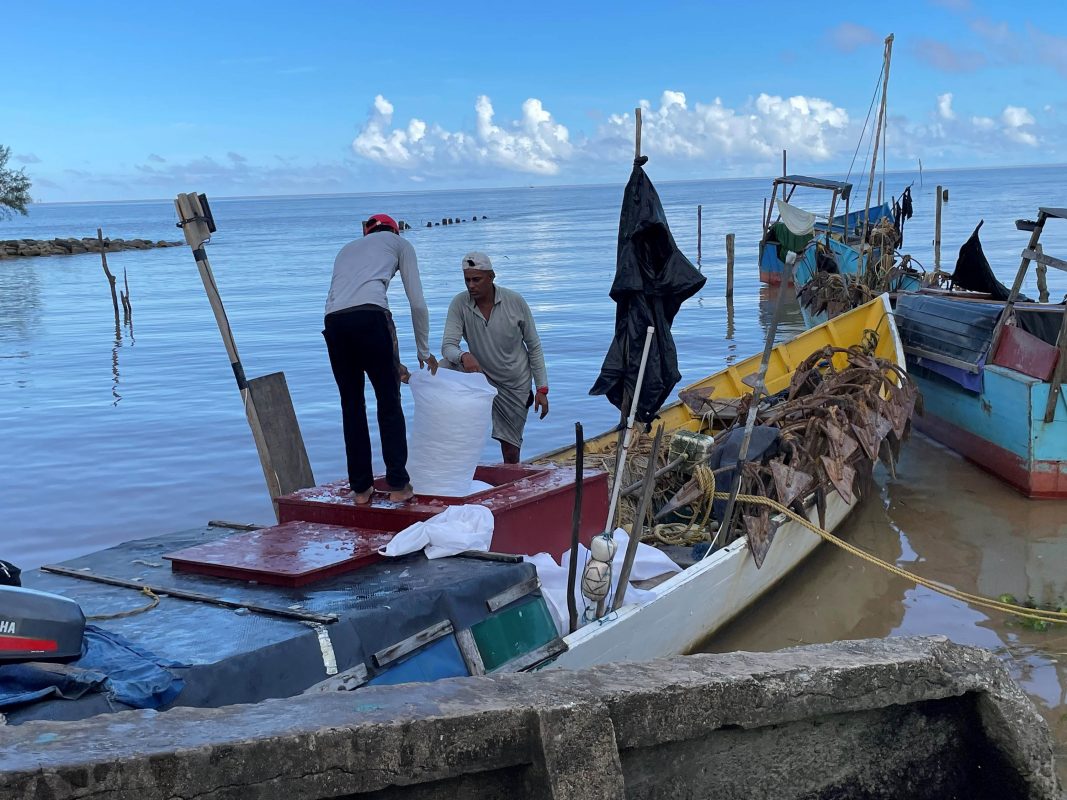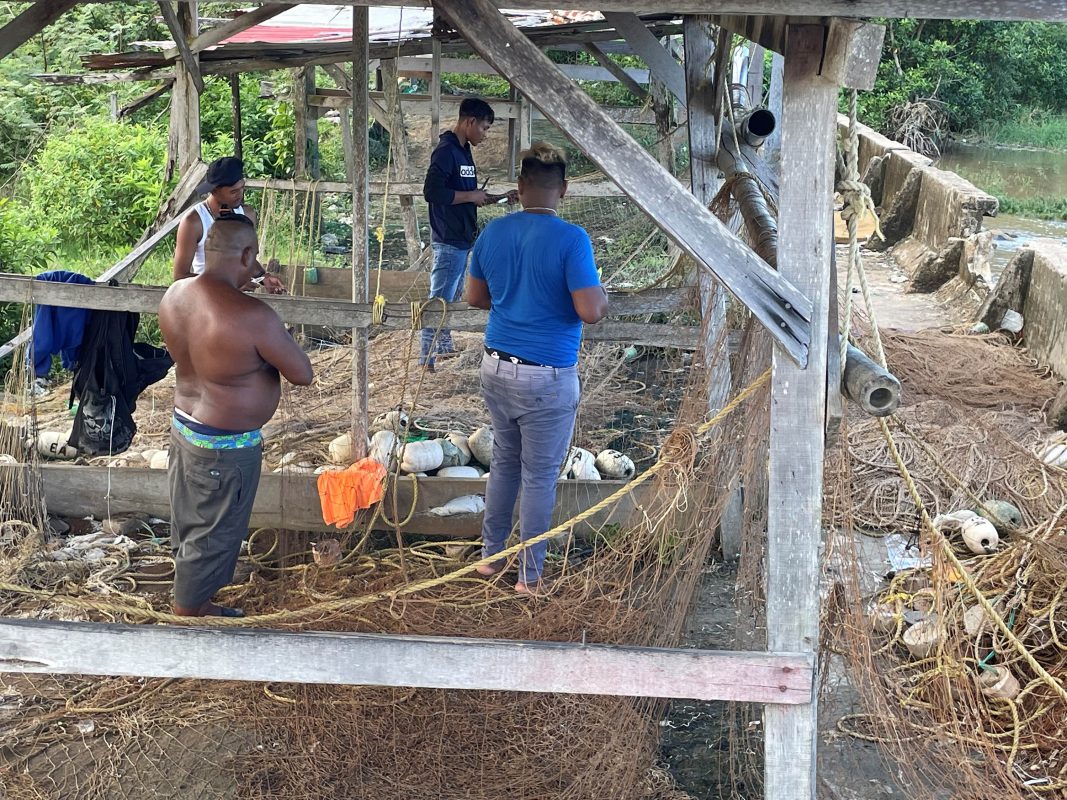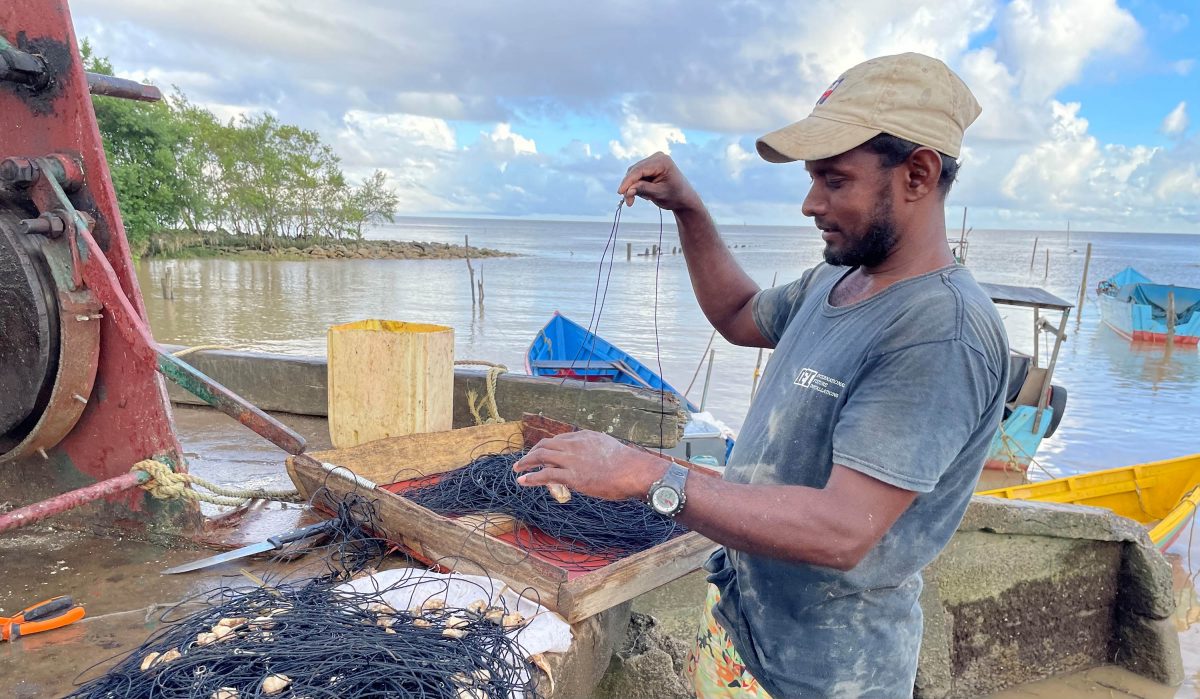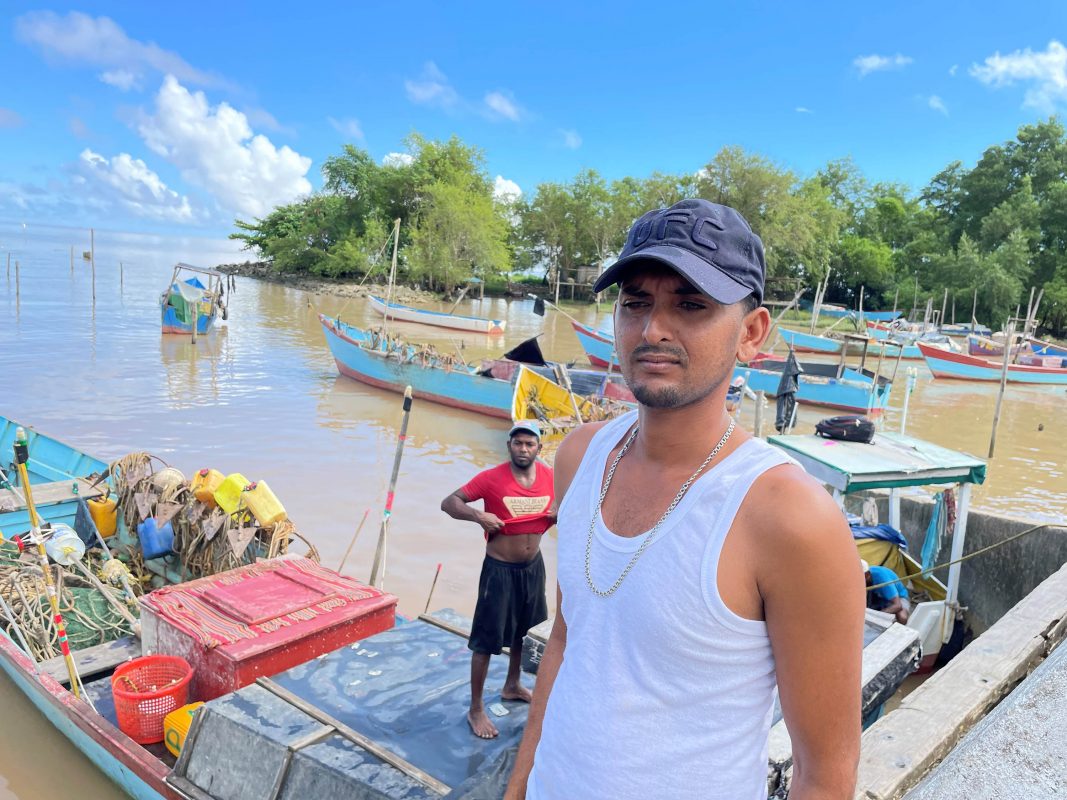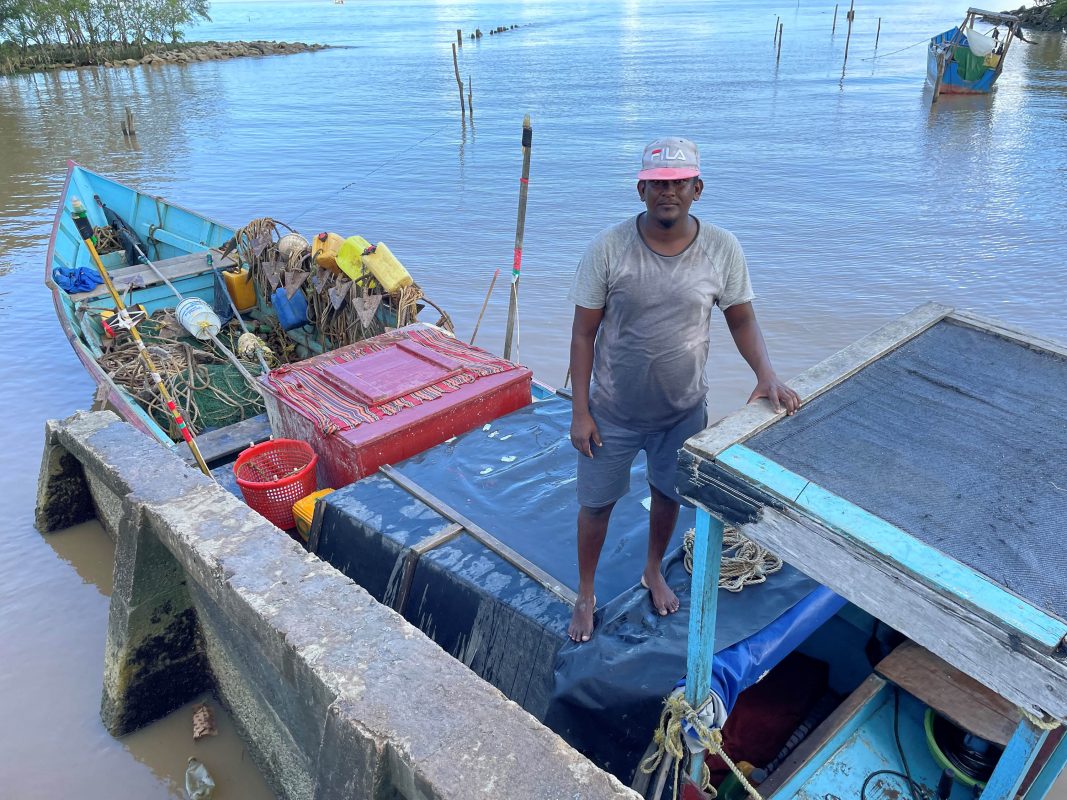The dire state of the fishing industry has caused Soorsattie ‘Lilly’ Chandrapaul to put two of her fishing boats up for sale and cease operations with the third after she suffered major losses.
The mother of four of Meten-Meer-Zorg (MMZ), West Coast Demerara is among many fisherfolk in Region Three and other parts of the country who are alleging that the drilling of the oil is resulting in extremely low catches.
“We don’t know what is going on below the sea, but the fish know. Probably the noise and the vibration from the drilling is causing the fish to run away,” one fisherman declared.
Observers have noted that studies are needed of the reasons behind the low catches and whether overfishing and a change in salinity are also factors in the changes. Climate change is seen as having a range of repercussions.
“This crisis is affecting us badly. It is the hardest year we ever faced. In this way the industry would collapse in about three years; our livelihood is at stake. The government is only looking after the farmers, but we need compensation too for our losses.”
They lamented that fishermen “feed the nation” by braving harsh conditions at sea, including storm and the scorching sun, but they are not given any importance.
In the case of Chandrapaul, she stopped her captain and three crew members from going out to sea about two months ago.
That was after they made about five trips, lasting for about six to eight days, and only came in with about 15 to 20 trouts. Before that they would usually return with over 200 trout, snapper and other fish.
She told Stabroek News in an interview, “For each trip, I would invest about $120,000 to purchase gas, ice, grocery and meat and also give advanced pay to the workers. I used to make enough money but now I can’t even cover my expenses.”
The woman, whose husband operated the business for over 20 years, took it over six years ago after his death. She said this is the worst time she has ever faced.
She had tried to rescue the business by using her savings to stock the boat and sending it out again, hoping that the next trip would be better.
During last year she noticed the catch started decreasing and it was for that reason that she put two of the boats for sale in January of this year. The situation has made her “frustrated and I am looking for a job.”
This newspaper caught up with Chandrapaul and some of the fishermen at the Meten-Meer-Zorg koker where some were repairing their seines and a few others were stocking their boats in preparation for another journey out at sea.
The boats that operate measure about 36 to 38 feet in length.
They are licensed to fish in some parts of the Demerara and Essequibo waters and prefer to use the smaller engines because they consume less fuel.
One fisherman lamented that when the business was thriving, his boat would go out for just three days and his “2000-pound fish box would be full with trout, snapper, catfish.”
A vendor, who once worked as a fisherman, said he and about 10 other vendors would go to the koker to purchase fish when the boats return from sea.
Only three of them might be lucky to get a little, though. They are distressed about not earning enough to take care of their families.
The captains and many of the fishermen have already walked away from the “fishing work” and are seeking jobs such as labourers and drivers.
Asraf Ally, a fishing boat owner of Ocean Garden, MMZ, told this newspaper, “I am the breadwinner for the house and it is affecting me a lot… I am not finding enough money to finance my house so that my family can live a comfortable life.”
“My boat has to spend about 10 to 12 days at sea and it would not come in with enough catch to cover expenses for the boat, what about expenses for the workers and for us as the owners.”
His boat would make one or two trips per month and after each trip his seine would have to go for repairs.
Nice piece of money
Before this crisis “we used to make a nice piece of money, like for a five-day trip, a workman coulda carry home about $30,000 to $40,000. Now we are barely taking home $8,000 to $10,000…, which is way under the government wage.”
Ally stressed: “What we are heading for is amounting to starvation because to me, in the next two to three years, this fishing industry would come to a close…”
He said his [late] father started the fish and shrimp business in 1965 and never “faced anything like this.
He said they would all have to find alternative means of earning a livelihood, while noting that most of the fishermen are illiterate and he does not know what would happen to them.
Navendran Balgobin, 29, a boat owner/captain who has been involved in the fish business for about ten years, said two years ago when he noticed a drop in his catch he was not prepared for the “worst outcome.”
He goes out to sea with two crew members and after spending five days at sea, would usually return with a catch of about 100 to 150 trout and snapper. For the past couple months his catch has started to decline to below 40.
According to him, “The majority of fishermen do not have the qualifications to go and get a good job. So we have no other choice but to go out and try our luck again, just to maintain our families. You just can’t stay home every time and sit down.”
Yasir Mohamed, 30, has been depending on the fish trade to maintain his wife and two children, ages six and seven, as well as his parents and his younger brother.
“We all live in the same house. I am trying hard to get my own house but I am not getting to save any money towards it,” he said.
He, too, goes out to sea two times per month, for about eight days. His five-inch nylon seine would become damaged from “shark bites” or from getting entangled with wood or any other object in the water.
He told this newspaper.., “The last time I went out my seine got bad rip up. Right now me and another person repairing it and I have to pay him $8000 per day.”
He alleges that “since the drilling for oil start, it cripple the fishing industry,” reducing his catch from 200 trout, snapper and gillbacker to less than 40.
“Then we are not getting the price for the fish. We used to get $260 for a pound of trout, now we’re only getting $240. And the gas price (is) $209.”
His boat is equipped with a 1000-pound ice box, which holds 20 bags of ice. When it has melted, it is time to head back home whether the box has enough fish or not. He is aware that “every day is fishing day but not every day is catching day.”
Most of the fishermen learnt the trade from their fathers, and in the case of Safraz Rahim, 41, he started going out at sea since he was nine-years-old.
“The fishing work comes to nothing now and the fishermen are not benefiting from this business anymore,” the distressed Rahim said.
He owns a small boat that is fitted with a nine horsepower engine and goes about 15 to 20 miles out for just one day. His uses lines with large hooks and his catch includes catfish, basha and lau lau.
“I used to make $15,000 for a tub of catfish, now I’m just making less than $10,000,” he pointed out.
He lives in a humble house right next to the koker and plants a kitchen garden to supplement his income. He lost his crop twice to flooding but did not receive any flood relief.
Chaitram, 34, was loading his boat to make a trip out at sea when this newspaper visited. He was introduced to the fishing work since he was 12 years old.
He is not sure why the work has gotten “harder since last year. I get 20 to 30 trout I don’t even clear my expenses. Sometimes my workers would barely get money to purchase grocery for their families.”
Even though he does not clear his expenses of $100,000 for his seven-day trip, he would still go out again, because “this is the only work we know.”
He lives with his parents and a brother, who also owns a fishing boat but was forced to “park it and is looking for road work.”
About eight years ago when Robin, 24, invested in the business he “used to make more money, but now I’m not really making anything. Last trip I barely made $20,000 and that could not clear my expenses.”
We work hard out there (at sea), sometimes in the rain and sun. You have to do what you have to do but you don’t have nothing much to take home. The way the fishing business is going he is not sure if he would continue with it. Everything is getting more expensive…”
They are hoping that those in authority can find a solution fast to save the fishing industry and end the sufferings of those who are affected.
Stakeholders
On November 24, Agriculture Minister Zulfikar Mustapha met with stakeholders from the fisheries sector to discuss a range of problems.
A release from the Ministry of Agriculture said that during the meeting fishermen raised concerns about the low catches they are currently experiencing.
After listening to the fishermen, the release said that Mustapha stated there has been a noticeable decline in catches over the years and that the government was in full support of having the necessary analyses done to determine the root cause.
“Let me make it clear, this government will not let the fisheries industry die. We agree that there have been low catches but we have to shy away from making assumptions without first conducting a proper analysis. Guyana is not the only country that is being affected by low catches. This is a global phenomenon and the factors will vary from country to country. The reason behind low catches in one country may not be the reasons behind low catches in another. A number of factors can be causing the low catches and, as a government, we are prepared to work with you to do the work so that we can have a solution to this issue,” Mustapha said.
He told the fishermen that the government has since engaged the Environmental Protection Agency and the United Nations’ Food and Agriculture Organisation to assist with conducting an analysis to determine the reason behind the low catches.
